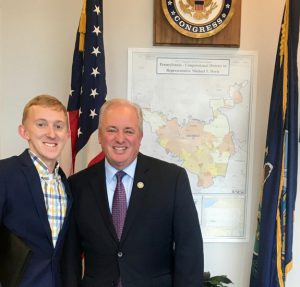Being an advocate for something you’re passionate about is a rollercoaster ride — one that I’d invite anyone to join in on. Your journey as an advocate can also be compared to a marathon, as you’ll experience many small victories, many small setbacks, losses that sting and monumental wins that make it all worth it. And despite what many people may think, becoming an advocate is easy — just answer these questions:
- Do you care about a social cause?
- Do you have a story to share that shows why you care about this social cause?
- Are you registered to vote?
If you answered yes to at least two of those questions, you’re ready to become an advocate.
Although it can be intimidating to take your first step into advocacy, or to contact your elected officials, a quick change in perspective may help. Congress, and every other elected official that has ever won an election, works for YOU. They wouldn’t be in their positions if citizens didn’t vote them in, and they won’t continue to be in that office without your continued votes. It’s important to hold them accountable.
In a meeting last month with Mike Doyle, U.S. Representative for Pennsylvania’s 14th congressional district, we spoke briefly about the number of bills and resolutions introduced to Congress each session:
- In the 114th Congress, which ran from January 2015 to January 2017, 12,063 bills and resolutions were introduced.
- Congressman Doyle said of those, less than 5% became law.
- He explained that the 5% that became law represented citizens who wrote letters, made calls and came into the Congressman’s office to meet with him and/or his staff.

The purpose of my meeting with Congressman Doyle was to educate him further on the Global Partnership for Education (GPE) and the Reach Every Mother and Child Act. Both bills help promote education and health standards in developing countries and are at the forefront of causes I am passionate about, including ending hunger by 2030.
Congressman Doyle said he knew very little about either piece of legislation before July 2017 when I met with his lead legislative aide. We had a very productive meeting, lasting only about 20 minutes. The legislative aide then put together a brief for the Congressman, and in August when I met with him, he was very receptive. On September 6, he signed on as a co-sponsor to the GPE resolution and gave his full support to H.R. 4022 (the Reach Every Mother and Child Act/House version of S.1730, which is currently held up in the Foreign Relations committee).
It only took two short meetings to get Congressman Doyle’s support, and by giving these pieces of legislation a backstory, they had a much better chance to join the 5% of bills that become law. It was easy! You automatically increase the odds of your bill becoming law by simply scheduling a meeting with your elected official. If they support what you’re advocating for, then it increases the odds further.
Congress works for us, and we must make sure they are being held accountable for the things we care most about. If we want to achieve our ultimate goal of ending hunger by 2030, it will take numerous meetings with Congress, state officials, mayors and others with a platform to advocate for the millions of people facing hunger around the world.

Join me and become a Hunger Champion by signing up now to receive up-to-date action items. Call your elected officials, schedule meetings, write letters to the editor….there are so many quick ways to begin the conversation. The Constitution wasn’t written overnight, and to get to 2030 successfully, the work starts now. Will you join me?
 "
"